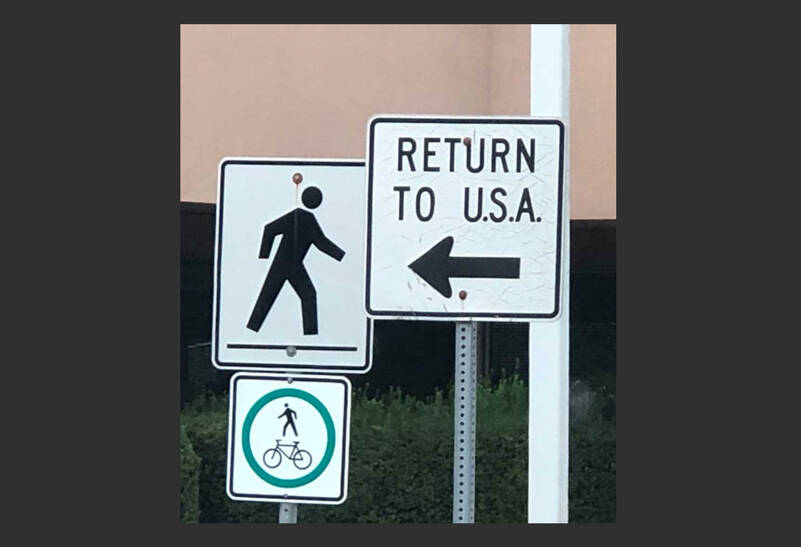By Morf Morford, Tacoma Daily Index
From life-changing New Year’s resolutions to budget-busting government programs, one principle that virtually all of us take as a given is that big problems require big solutions. I would argue that that is not, and has never, been true.
Consider any social problem, from homelessness to addiction to crime; each one of those became overwhelming, even threatening, to our well-being, our safety and, of course, our civic budgets.
And each one of them began slowly, but somehow, through neglect and direct policy choices, and lots of personal choices, each one of those social problems grew from petty annoyance to problem to paralyzing, unsolvable quagmire.
In other words, with enough time, and a steady contribution of malice and avoidance, any problem, however tiny it might be at first, can be fanned into an all-consuming flame that consumes everything it touches.
It doesn’t need to be this way.
When it comes to homelessness, for example, each homeless person (or family) made their way individually into their own housing crisis.
The prevention, or, at this point, solution, to homelessness is equally individual.
The same principle holds true in immigration. And in public health crises – like any flu or pandemic. Or traffic collisions. Or crime or gun related deaths.
From COVID to obesity to a whole host of health issues, our small, continual choices add up to impact out long term well-being.
Immigrant dreams
By most counts, the world has more (far more) immigrants and refugees than at any other time in history.
Millions currently live in dismal semi-permanent refugee camps around the world. You can see updated statistics here.
The vast majority (over 70%) come from just five countries; Ukraine, South Sudan, Afghanistan, Venezuela and Syria.
War, famine and natural catastrophes – and various forms of persecution (religious or ethnic, for example) motivates, or forces, departure from what was once home.
Virtually every single one of those departures was the culmination of dozens, if not hundreds, of conversations, decisions and sleepless nights for each individual and family.
Each one left their familiar home, language and traditions for, to a large degree, their own reasons.
We see accumulated crowds of refugees in camps or along borders – and we see how they overwhelm border officials and processes and potential services specifically designed for just such people.
Immigration and the seemingly unending flood of refugees, are the ultimate example of a paralyzing, overwhelming and budget-busting constellation of problems that never had to happen.
The simple (but not necessarily easy) solution to immigration is obvious; help those people stay home.
It is never easy to leave home. Leaving one’s friends, neighbors, traditions, and for many, one’s faith and language, could only be difficult.
Abandoning the familiar, and taking one’s family to face unknowable hazards and risk in the pursuit of safety or freedom is easily the most dangerous journey any one of us could take.
The ultimate irony for America is that this is precisely the set of characteristics we, for centuries idealized, if not glorified.
Those who sacrificed “old world” cultures, faith and traditions and other “ways” were our heroes – they were literally what defined us and set us apart and yes, made us “great”.
Statistically, 99% of us made our way from other cultures and places for our own reasons.
As the US official immigration website puts it; “Such reasons may include a desire for economic prosperity, to change one’s quality of life, better job opportunities, family reunification, retirement, climate or environmentally induced migration, exile, escape from prejudice, conflict or natural disaster.”
In other words, if life back in “the old country” would have been even a little less hostile or offered a tiny bit more opportunity or freedom, most of “our people” would have stayed.
The same is true of immigrants and refugees today.
In short, if we don’t want hordes of desperate fugitives at our borders, we need to help them do what they would rather do anyway – stay at home in their own culture, faith, language and traditions.
The same with homeless people on our city streets.
The near universal bottom-line is that virtually every homeless person would far rather be in their own space than exposed to crime, violence, constant public humiliation and the elements on our streets and sidewalks.
Big programs, with big budgets, make big promises. But what we need is a multitude of small, individual responses.
Several churches have collected money and resources for Ukraine recently. What if half of the churches (and a few other organizations) pledged to take in (and be advocates for) five homeless families each year?
Yes, we’ve all heard the argument that five homeless families is nothing on the scale of urban homelessness. And technically, that’s true.
But just as no individual or family made their way to homelessness by themselves, few, if any will get out by themselves.
And just as each one took their own journey to homelessness, they will each take their own way out of it.
You’ve probably heard some version of the story of the child on the beach rescuing starfish; A boy stands on the beach, where hundreds of starfish have been swept up by the waves and stranded there to die. He’s throwing the starfish back in the water, one by one, so they can survive.
A grown up watches him for a minute from up on the boardwalk, and then yells down, “You can’t possibly throw all those starfish back in the water. You could stand there all night throwing starfish — it won’t matter.”
The boy looks around, throws another starfish into the water, and says, “It matters to this one.”
No single program or strategy will solve our vast social problems, but a wide constellation of simple (but not always easy) solutions will.
Oddly enough, there is nothing new about this. In fact, it would be easy to make the argument that there is nothing older (and more enduring) when it comes to maintaining and restoring social order.
As noted anthropologist Margaret Mead put it; Never doubt that a small group of thoughtful, committed citizens can change the world; indeed, it’s the only thing that ever has.





